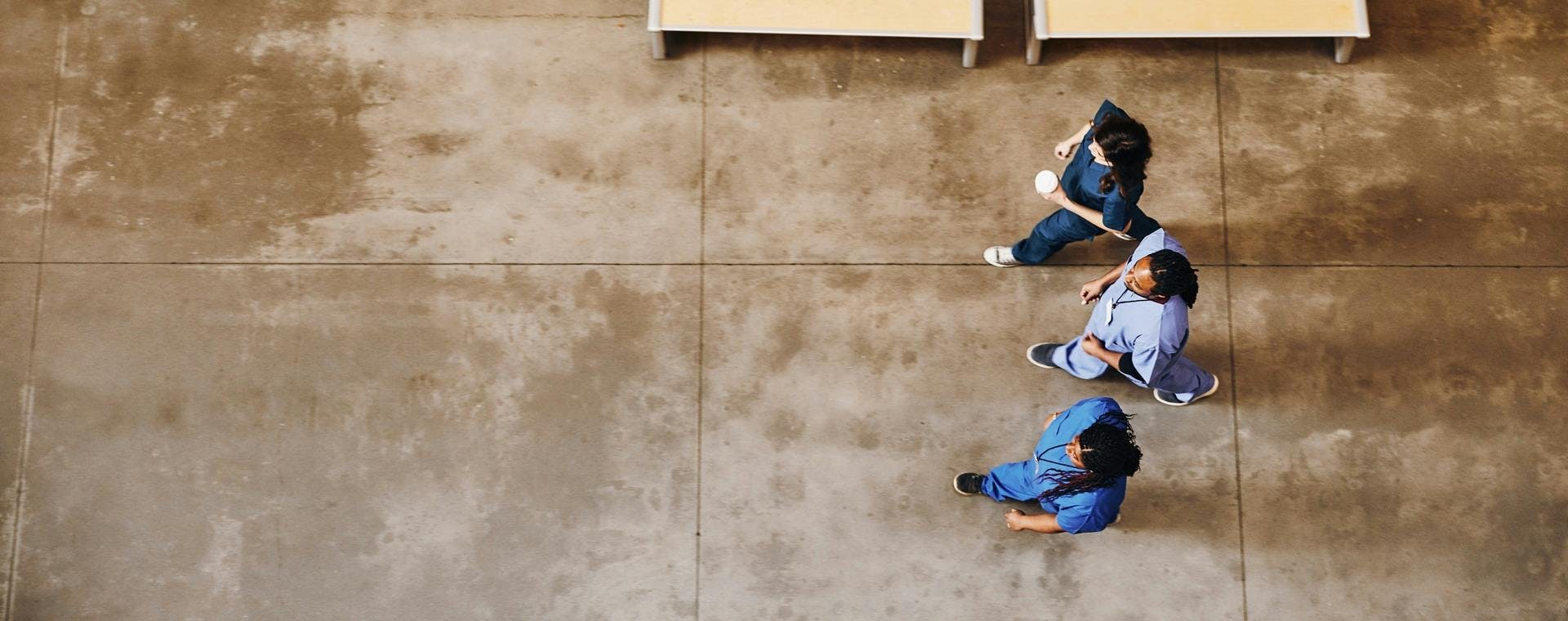Anaesthetic negligence compensation

is often a necessary part of medical procedures and can be associated with serious health risks. Experienced medical professionals can make the process as safe as possible for patients, but there are few worse experiences than when something goes wrong. This may result in anaesthetic awareness, which refers to patients waking up or feeling excruciating pain while undergoing surgery. If you’re given too much anaesthetic, or aren’t monitored carefully throughout the procedure, this can also have long-term health consequences.
At Switalskis, we know how it feels when you are let down by a doctor or medical professional. When you go under anaesthetia, you put your life in your doctor's hands and trust that they’ll treat you with the care you deserve. When things go wrong and you’re subjected to negligence, it is often devastating. Our expert medical negligence solicitors know how you feel and want to help you put things right.
In these cases, it's vital to make an anaesthetic negligence claim. Compensation can make your recovery more comfortable, help you to make adjustments to your life to accommodate your injury and hold those responsible for your pain and suffering to account for their actions.
If you’ve suffered due to errors made by a medical professional during and you want to make an anaesthetic negligence claim, reach out to Switalskis. We're here to talk about your situation and guide you through the process of pursuing justice.
Call us today on 0800 1380 458 or contact us through the website to start the process.

Anaesthetic negligence is a highly specialised area of medical law that requires a unique blend of legal and medical expertise. The consequences of such negligence can be severe, affecting both your health and your peace of mind. At Switalskis, we're committed to guiding you through this complex process, offering a comprehensive service that goes beyond just legal representation.
Our approach involves a review of your medical records, consultations with experts, and a comprehensive gathering of all relevant evidence. We aim to build a robust case that clearly establishes the link between the negligence you experienced and the harm you suffered.
At Switalskis, we understand that every case is unique, with its own set of emotional and physical challenges. That's why we tailor our services to meet your specific needs. From the moment you reach out to us, we focus on understanding your individual situation, offering personalised advice and solutions.
Anaesthetic negligence covers a broad range of medical mistakes, injuries and healthcare failures. To illustrate the types of situations in which you might be able to make an anaesthetic negligence claim, we'll explain some of the most common injuries that may entitle you to compensation:
This is not a comprehensive list of circumstances that might allow you to claim compensation. The best way to learn whether or not you can claim is to speak to a specialist solicitor about your situation. Call Switalskis today for a free conversation and we’ll help you to understand your eligibility.
There are several common issues that may be caused by anaesthetic negligence. You may be eligible for anaesthetic compensation if you experienced any of the following:
Our solicitors are sympathetic to the challenges patients often face when they’ve suffered from medical negligence. It can be difficult to revisit these experiences when making an anaesthetic negligence claim and Switalskis will give you the time you need to tell your story. We approach every case with patience and understanding, because we know that at the heart of every claim is a person whose life was changed by a difficult experience.
The process of making a claim can vary depending on a variety of factors, including the time it takes to negotiate a settlement and whether or not the liable party admits their responsibility. However, we will always follow the same procedures to help you build the strongest possible case and succeed in securing compensation.
Reach out to Switalskis for a free, no obligation initial consultation. During this meeting, we’ll listen to your story, understand your concerns and explain whether we think you have a strong case. If we decide to proceed, we can then discuss the next steps and the available funding options.
We’ll gather all the relevant information we need to build your case. This will include applying for all of your medical records, including your GP records. We’ll ask you for photographs, receipts and any other documents that may support your claim. We’ll take a detailed witness statement to tell your version of events. We may arrange for you to be assessed by an independent medical expert to provide an unbiased view of your injuries and future prognosis. The aim will be to prove that the negligence was responsible for your injury and consider the potential value of the claim.
Once we have supportive evidence, we’ll send a letter of claim to the doctor and/or hospital involved. This will outline details of the claim and state allegations regarding the negligent treatment.
The defendant will then have four months to investigate the allegations made against them and respond to the letter of claim. This is known as a letter of response. The letter will include whether the defendant accepts they are at fault. This is called an admission of liability. If they do not accept fault, theu will state this in the letter and this is called a denial of liability. We will advise you of the next steps at this stage.
If the defendant or medical practice has admitted fault, negotiations can start. Our anaesthetic negligence solicitors will negotiate on your behalf, using our expertise and experience to secure the highest possible compensation amount for you. At this stage, we will discuss how much compensation you may receive. This will be calculated to cover the pain and suffering caused by anaesthetic negligence, as well as any financial losses or expenses you’ve experienced as a result.
Most claims will be settled through negotiation, without needing to go to court. In the rare instances where the case does go to trial, you can trust us to represent you throughout the process.
At Switalskis, we stay in touch with our clients at every stage to keep them up-to-date on our progress, so you'll always know exactly where your case is up to.
Contact us today and let's start your journey towards recovery together. Call us today on 0800 1380 458, or get in touch via our form.
Every anaesthetic negligence claim is different. A compensation award depends on numerous factors including the nature and extent of your injuries, the long-term effects on your health and lifestyle, and any money you lost because of the incident.
The results of medical negligence while under anaesthetic range from mild pain with no lasting effects to life-changing injuries. This makes it impossible to provide an estimate without knowing the full circumstances of your case. However, we can explain the factors that we consider when calculating how much compensation you are entitled to receive. The total compensation is a combination of two types of damages:
Call a specialist solicitor from Switalskis for a free initial chat about your circumstances. By talking through your unique situation, we’ll be able to estimate how much compensation you could receive and get the process started.
Potential costs are among the biggest concerns our clients have about claiming compensation. At Switalskis, we're committed to making the process as accessible as possible by offering various funding options to meet your needs:
Remember, your first consultation with our clinical negligence solicitors is free and without obligation. We'll discuss the funding options available to you and help you choose the best one for your situation.
When it comes to making an anaesthetic claim, it's vital to be aware of the statutory time limit, also known as the limitation period. The general rule in England and Wales is that you have three years from the date of the negligence, or from the date when you first became aware of the negligence (known as the date of knowledge), to bring a claim. This date of knowledge is not necessarily the date the injury happened, but instead when you realised that the injury or health problem was caused by someone else's error.
There are a few exceptions to this rule:
Given the complexity of limitation periods and the potential consequences of missing these critical deadlines, we strongly recommend seeking legal advice as soon as you think you may have a claim.

Anaesthetic negligence claims can be daunting, but they don't need to be difficult. Having the right emotional and legal support is vital, and with Switalskis by your side, you can make the process as simple and straightforward as possible. We will shoulder the legal burdens and keep working towards the compensation that you deserve, so you can focus on what matters to you and devote your energy to your recovery.
In that spirit, we pledge to uphold the following values whenever we provide legal services to clients in need:
Both legal and medical terminology can be complicated. Our medical negligence solicitors have expertise in both areas, and can help by breaking down jargon and explaining everything to you in the simplest terms possible. In this way, we make sure you understand everything clearly to give you the confidence to make decisions throughout your claim.
Every case is different, and our team knows how important it is to listen to your story and understand the specifics of your situation. This is the only way for us to make sure you get the full amount of compensation you are entitled to, and it also enables us to be empathetic to your needs. We not only provide the highest quality legal services, but also emotional support to help you through this process.
Thanks to our many years of combined experience, we understand the complexities of anaesthetic negligence claims and always know how to keep moving your case forward. We are steadfast in pursuing justice for you, and we can make sure you receive the maximum amount of compensation you’re entitled to.
We understand that it can be very traumatic to be let down by a medical professional, especially when you go under and put your life in their hands. Our experts know that making a compensation claim is not just about money - it's about putting right what happened to you and achieving justice. We'll protect your rights throughout the claims process, amplify your voice and help to make sure similar incidents are prevented in the future.
If you’ve experienced anaesthetic negligence, you don’t need to suffer in silence. Anaesthetic negligence compensation claims can help to put things right. Speak to the team at Switalskis today to learn how much compensation you could be owed and start the process of making your claim. Call us on 0800 138 0458 or contact us through the website today.